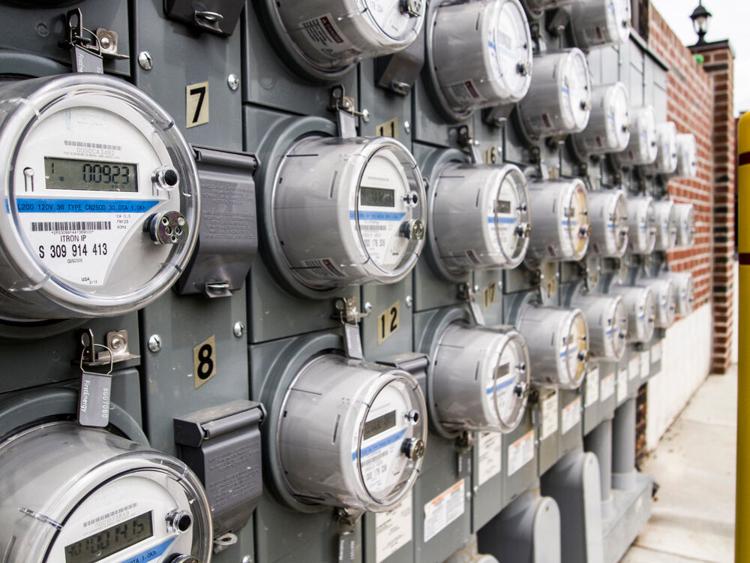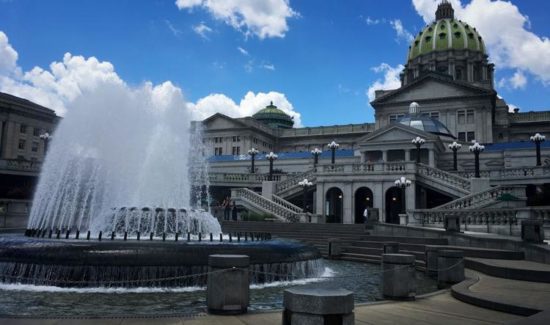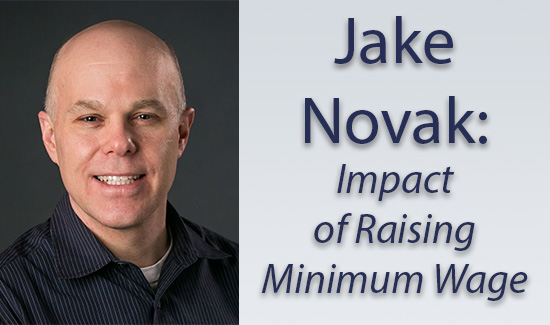California Carbon Tax Lessons for Pennsylvania

By Kevin Mooney, investigative reporter with The Heritage Foundation
Pennsylvania’s urban dwellers can expect to take a beating financially and environmentally if their governor presses ahead with an energy tax scheme that is essentially a reloaded version of an old one.
That’s because industry leaders have the option to relocate power plants to neighboring states that are free from burdensome regulations. Ohio and West Virginia stand to gain while the “Keystone State” loses out. In fact, this process is already in motion.
Since former Gov. Tom Wolf, a Democrat, first announced his intention to have Pennsylvania join a multistate climate agreement back in 2019, business leaders who prefer long term certainly have been pivoting and adjusting their plans. Ohio, for example, is getting second power plant in Lordstown that will supply energy to 800,000 homes while Pennsylvania is at a standstill.
And that’s just the economic side of the equation.
The assault on affordable, reliable sources of energy such as oil, gas, and coal, will also have an environmental fallout. As the state is forced to become more reliant on wind and solar power sources, it will find itself grappling with a host of new challenges. Wind farms have a tendency to gobble up large swaths of pristine land while jeopardizing wildlife. They can also have a deleterious effect on human health when located in close proximity to densely populated areas. Think in terms of some of poorest sections in Pennsylvania. Solar farms come with their own special problems since they can also impact wildlife habitats and leak toxic materials that are harmful to plants, animals, and humans. The Harvard Business Review goes into some detail about “The Dark Side of Solar Power” and the special challenges associated with solar waste. Pennsylvania policymakers who are determined to press ahead with new solar initiatives should take a hard look at what’s going down in California where landfills are under a severe strain from solar panels that have ended their life cycle.
At issue, is Pennsylvania’s participation in the Regional Greenhouse Gas Initiative, widely known as RGGI, which is built around “cap and trade” regulations. In some respects, RGGI takes inspiration from California’s Global Warming Solutions Act, which Gov. Arnold Schwarzenegger, a Republican, signed off on in 2006.
In states that are part of RGGI, regulators impose an upper limit or “cap” on the amount of carbon dioxide emissions that power plants are permitted to emit. Power companies that exceed the cap are then compelled to “trade” their excess emissions in the form of “allowances” at quarterly auctions to those companies that have not. The rationale behind “cap and trade” is to provide companies with financial incentives to reduce their emissions.
But along the way toward implementing RGGI, Wolf ran into constitutional problems his successor has inherited. Last fall, the Commonwealth Court of Pennsylvania ruled that since RGGI involves the imposition of new taxes on carbon that can only be enacted through the state legislature, the governor cannot act unilaterally. Put simply, the court reaffirmed the concept of “No Taxation without Representation.”
Gov. Josh Shapiro, a Democrat, and former attorney general, who was elected governor in 2002, has appealed the court ruling. But he’s also searching for a third way. In March, Shapiro rolled out a new “cap and trade” plan that would just be localized to Pennsylvania. There’s a tacit acknowledge here that governor knows he’s facing very tough legal terrain where RGGI is concerned. Even so, there is very little daylight between Shapiro’s proposed Pennsylvania Climate Emissions Reduction Act, or PACER, and RGGI, where business interests are concerned.
In testimony before Pennsylvania’s General Assembly, Rachel Gleason, executive director of the Pennsylvania Coal Alliance, has repeatedly made the point that there will be a ripple effect from imposing new anti-industry regulation in tandem with new energy taxes. Here’s what she said in testimony back in 2020:
“Establishing any cap and tax program on carbon emissions in Pennsylvania comes with great risk that goes beyond the survival of fossil-fuel generation in Pennsylvania. The economies of communities in Pennsylvania benefit greatly by the presence of these electric generating units, and they also benefit from the production of coal, which would be significantly impacted with the inevitable closure or these generators. Counties, school districts and municipalities receive millions of dollars in property tax revenues from coal operators, and many of the people living in those communities work at or support the mines. In Greene and Washington Counties
alone, nearly $17 million dollars in taxes are paid by operators annually.”
In other words, there will be a ripple effect from the closure of businesses that succumb to RGGI’s onerous regulations.
By and large, it will be urban areas, and the poorest school districts that are hardest hit by the loss of power plants that provide this revenue.
Pennsylvania is called the “Keystone State” because it was middle colony of the original 13 colonies. The state has its own special history with the concept of “No Taxation without Representation.” The critical battle against anti-constitutional figures who seek to elevate unelected administrators over elected officials is being fought here.
Since politicians have worked incessantly to demonize Co2 despite its benefits to agriculture and plants, they prefer to speak in terms of carbon taxes as opposed to energy taxes. Gregory Wrightstone, a Pennsylvania native, who is also executive director for the CO2 Coalition, an Arlington, Virginia-based group, recently dissected the faulty claims the Shapiro administration has advanced to rationalize its anti-energy schemes.
If concerned citizens, and their elected officials can bring their overreaching executive to heel while pressing for an honest up and down vote on energy taxes in the state legislature, they will have made their revolutionary antecedents proud.
Kevin Mooney is an investigative reporter with The Heritage Foundation in Washington D.C.






